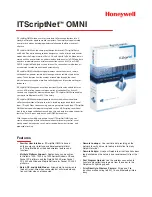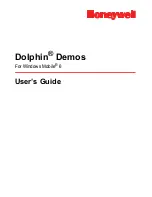
S
927
Programming Operations Guide
Routing Information Protocol
See RIP.
routing service
Routing services defines schedules that allow you to change the route of a call without
changing the destination code. This provides a way of shifting from one service provider
to another at different times of the day if the rates are better. The system determines the
routing; the user continues to dial the same number. Use Routing services to configure
these schedules. (Services, Telephony Services, Scheduled Services)
Run/Stop
A feature that creates a break point in a programmed external dialing sequence. When you
press a programmed key, the system dials the number up to the run/stop. When you press
the programmed key again, the system dials the digits following the run/stop.
S
SAPS
A Station Auxiliary Power Supply (SAPS) provides power to a telephone that is more than
300 m (975 ft.) and less than 1200 m (3900 ft.) from the Business Communications
Manager, or to a CAP configuration. Legacy 7324+CAP module CAP configurations
require a SAPS for all modules. 7316E+KIM CAP configurations only require a SAPS if
more than four KIMs are connected to the 7316E.
saved number redial
A feature that allows you to save the number of the external call you are on, providing you
dialed the call, so that you can call it again later.
schedules
Any of six sets of services you can apply to your system. Schedules allow you to control
ringing, routing and restrictions services based on day of the week and time of day. You
also need schedules if the system VoIP trunks are set to allow fallback to PSTN lines. See
“Configuring schedules” on page 489
and the
IP Telephony Configuration Guide
.
Secure Sockets Layer
See SSL.
selective line redirection
See line redirection.
serial port
A port that sends and receives data one bit at a time. You can use this port to connect the
Business Communications Manager base unit to a printer, external modem or mouse. The
serial port connector has nine pins and is identified by software with the letters COM and
a single digit, such as COM1.
Summary of Contents for BCM 3.7
Page 4: ...4 Software licensing N0008589 3 3...
Page 32: ...32 Contents N0008589 3 3 W 937 Index 939...
Page 46: ...46 Tables N0008589 3 3...
Page 64: ...64 How to get help N0008589 3 3...
Page 90: ...90 Manually activating Telnet N0008589 3 3...
Page 116: ...116 Delayed system restart N0008589 3 3...
Page 194: ...194 Configuring a data module N0008589 3 3...
Page 276: ...276 Setting line telco features N0008589 3 3...
Page 310: ...310 Using COS passwords N0008589 3 3...
Page 364: ...364 Enhanced 911 E911 configuration N0008589 3 3...
Page 380: ...380 Renumbering DNs N0008589 3 3...
Page 398: ...398 Saving wizard pages on your computer N0008589 3 3...
Page 458: ...458 Voice Mail settings N0008589 3 3...
Page 488: ...488 Setting system telco features N0008589 3 3...
Page 508: ...508 Other programming that affects public networking N0008589 3 3...
Page 522: ...522 PRI networking using Call by Call services N0008589 3 3...
Page 592: ...592 Monitoring Hunt groups N0008589 3 3...
Page 636: ...636 Configuring Double Density N0008589 3 3...
Page 640: ...640 Using the Network Update Wizard N0008589 3 3...
Page 666: ...666 Importing and Exporting DHCP data N0008589 3 3...
Page 722: ...722 Restarting the router N0008589 3 3...
Page 726: ...726 Important Web Cache considerations N0008589 3 3...
Page 748: ...748 Configuring an Interface with NAT N0008589 3 3...
Page 794: ...794 IPSec N0008589 3 3...
Page 818: ...818 Configuring the Policy Agent characteristics N0008589 3 3...
Page 832: ...832 Firewall rules for Business Communications Manager with Dialup interfaces N0008589 3 3...
Page 876: ...876 ISDN Programming N0008589 3 3...
Page 1004: ...1004 Index N0008589 3 3...
















































